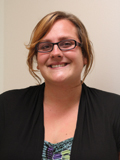
At an unknown place and time, a silent killer was released among the living. Its methods, inhumane. Its touch, enduring and foreseeably fatal.
Its victims are not chosen by clever calculation, but by age, gender and bloodline.
It releases its venom, piercing the brain and slowly depleting cherished images of love, relationships and simple recollections of every-day life.
In the end, it leaves us fighting a daily battle to survive in a suddenly unfamiliar world.
Our own identity diminishes as those around us suffer an almost equally painful experience ”” witnessing a degrading downfall of those we have loved for a lifetime.
Its victims lose themselves. The body and mind are no longer in synch, and the distance between its onset and finale are unpredictable.
Its attacks are imminently fatal. Even the strongest of leaders cannot prove themselves victorious over the monster’s reign.
At the turn of the 20th century, the killer had earned an identity and was named on behalf of its discoverer, German physician Alois Alzheimer.
Over a hundred years later, Alzheimer’s disease (AD) claims its victims’ lives at an alarming rate. As of this year, roughly 5.4 million U.S. citizens have been diagnosed with AD, according to the Alzheimer’s Daisease Research Foundation.
Someone is diagnosed with AD every 68 seconds. Each day, 1,232 people are told they have the disease.
The illness is as daunting as its reputation, and while science still cannot completely reveal its triggers, it remains one of the “top killers” in America ”” 25 to 35 percent of adults 85 and over fall victim to AD.
In its fatal nature, scientists predict that AD will eventually stand as the fourth or fifth cause of death in the United States.
According to research, the most vital risk factors include age (usually 65 and older) and family history, or genetics.
Current studies suggest that exercise, healthy eating and having an education can prevent the onset of AD.
Once a person has AD, the disease takes a 7-stage course on his or her cognitive abilities.
The first stage is almost nonexistent. It has no signs of impairment and no symptoms.
In the second stage, the disease begins to take its ruthless course. Basic memory begins lapsing, causing a person to forget the simple things ”” familiar words, locations, etc.
By the third stage, signs of forgetfulness are noticeable among friends, family and colleagues. It is difficult staying on task and remembering names.
It is now a challenge making plans and organizing.
In the fourth and fifth stages, when AD’s severity is high, a person cannot recall familiar details such as his or her home address or phone number.
They have trouble counting, adding and subtracting — simple arithmetic becomes a challenge.
By the sixth and seventh stages, its victims are experiencing severe cognitive decline. Personality and behavioral changes occur.
Suspicion, paranoia and compulsiveness can consume the mind, and a person may wander outside of their home at odd hours.
Eventually, AD completes its course as a person loses his or her ability to recognize or respond to their environment.
They are unable to hold conversations or carryout vital tasks such as eating, going to the bathroom, holding up their heads and swallowing.
At the end of its course, AD takes the life of its host.
In hopes of raising funds and awareness for AD, more than 600 communities across the country participate in The Alzheimer’s Association Walk to End Alzheimer’s ”” an event open to all ages and capabilities.
The association’s goal is to “eliminate Alzheimer’s disease through the advancement of research; to provide and enhance and support for all affected; and to reduce the risk of dementia through the promotion of brain health. “
On Saturday, Oct. 20, Fresno will host the 2012 Walk to End Alzheimer’s. All donations received by the association are used toward research efforts, including enhanced AD programs and education, and to ultimately find a cure.
As a part of the Fresno community, and a gerontology minor who believes in the importance of this cause, I urge students to walk — whether you walk alone or as a team.
AD is a growing epidemic that affects one out of every eight people over the age of 65. Someday, if not now, it will directly affect our generation.





